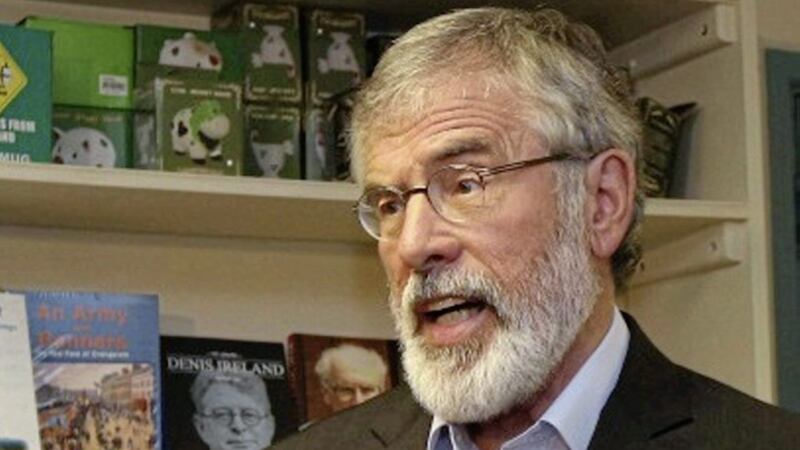If you were teaching a course on leadership and you were searching for an example of a leader facing a tough decision, you could do worse than study Gerry Adams right now.
We are heading towards the end game in Sinn Féin's position on Stormont. It must soon decide whether to resurrect the assembly with a DUP deal, or to continue the phoney war and leave Stormont as a temporary monument to political failure.
Although both options offer political opportunity, both also carry significant risks. In the north, the risks are easier to manage, because SF's core support is based on the belief that whatever the party does must be right.
The real dilemma for Sinn Féin is what impact its northern behaviour will have on southern voters and whether it is better to be in or out of Stormont during the Brexit negotiations.
So, what will Gerry do next? The Dáil's two main political parties have finally recognised that SF's soft under-belly as an opposition party in Dublin is its poor performance in government in Belfast. This has been caused by Stormont's economic policy and the sectarian inter-dependence of its two main parties.
Both Stormont and the Dáil employ the same economic policy, known as neo-liberalism. It argues that the private sector should run the economy with little involvement from government.
It is a policy which generates great disparities in wealth. Those who lose out tend to feel alienated, as seen in the US election of Donald Trump and the UK's Brexit vote.
Stormont's unpopularity arose in part from that same alienation, but Sinn Féin used the RHI scheme to collapse the assembly. It was a clever, short-term move, but a more sustainable (and non-sectarian) strategy would have been to demand an end to Westminster's economic policies as a pre-condition for returning to Stormont.
Adams is good at clever electoral moves. Twenty years ago when the IRA suffered its biggest military defeat, he declared victory and moved on.
When Stormont failed, he declared victimhood and moved on, this time claiming sectarian discrimination. After ten years in government, it was a less than credible claim, especially after the BBC's Spotlight programme exposed SF's and the DUP's sectarian interdependence in administering their Strategic Investment Fund - although this column and others had raised that same subject more than once.
However, the move boosted Sinn Féin's northern vote and effectively destroyed the SDLP.
But Sinn Féin's main objective is to enter government in Dublin. But it is annoyed at what Mr Adams described last week as the Taoiseach's "casting up issues in Northern Ireland [now there's a new vocabulary for a SF leader] which have nothing to do with the issues I raise.....Nobody in Northern Ireland [there it is again] is impressed when he refers to northern issues."
But the Taoiseach is not trying to impress northern voters. Both he and Fianna Fáil leader, Micheal Martin, are trying to impress southern voters - and therein lies Sinn Féin's decision-making dilemma.
Staying out of Stormont will allow Varadkar and Martin (particularly Martin, who has ruled out coalition with SF) to accuse Sinn Féin of opting out of government after the last Dublin election, opting out of Westminster permanently and now opting out of Stormont.
But by going into Stormont, Sinn Féin must settle for the DUP's cultural act rather than a stand-alone Irish language act (and a cultural act is believed to be under discussion). It will also mean a return to Westminster's economic policy, which despite the one-off £1 billion won by the DUP, will bring more cuts in education, health and social services.
For most of us, this decision would be a huge dilemma. For Gerry Adams, it will be just another day at the office - or it would be, were it not for Brexit. A renewed economic border will leave the IRA's victory claim appear rather hollow and raise the issue of whether Sinn Féin should administer a more entrenched form of Irish partition.
Being outside Stormont during the Brexit negotiations leaves Sinn Féin at risk of being side-lined in a national debate. Being inside Stormont means implementing austerity.
Of course, Gerry Adams has faced more critical issues and triumphed in them all. You will have your own view on what he should do, but staying away from Stormont until after the next Dublin election would appear the better option at this stage.
So he might be as well to say nothing for a long time - and then say nothing. Leadership is as much about timing as decision-making and timing is controlled by events. Let us see what events unfold to influence what Gerry Adams does next.









